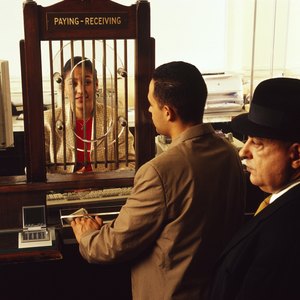
When you rent a property in New York, you have to give your landlord a security deposit, which is usually one month's rent. Your landlord must then place your security deposit in a bank or trust company account to be held until you move out of the property. Your landlord can choose to put your deposit into an escrow account run by an escrow agent, but he is not required to do so by New York law.
Account Type
When you entrust a landlord with a security deposit, he must treat it as your money and place it in a separate account from his money. However, he can keep your security deposit in the same account as another tenant's security deposit account. This account where he keeps the money does not have to be an escrow account. The landlord can deposit your security deposit in any bank or trust company account.
Tenant's Rights
As a tenant, you have the right to get information about the account where the landlord keeps your security deposit. Your landlord must give you a written notification of the bank's name, address and the amount of your security deposit. If you live in a rent-regulated building with six or more units, you're also entitled to earn interest on your security deposit. In other types of rental units, your landlord can choose whether to place the security deposit in an interest-bearing account.
Interest-Bearing Account Payments
Regardless of your rental unit type, you're entitled to the interest if your landlord keeps your security deposit in an interest-bearing account. You can choose to receive this interest payment annually or as a lump sum at the end of your lease. Alternatively, you can also choose to apply the amount of interest you've accumulated toward your rent. Your landlord can keep 1 percent of the security deposit amount as an administrative fee.
When You Move Out
When you move out of the rental property, the landlord must return your security deposit, minus any deductions. For example, if you damaged the property during your stay and the landlord has to repair it, he can deduct this amount from your security deposit. He can also charge for cleaning and restoring the property to move-in condition if you failed to upon move out. Landlords must cover the cost of normal wear and tear for their property. The landlord must return the security deposit within a reasonable amount of time after you vacate, typically 21 to 45 days, according to Nolo, a legal website.
References
Writer Bio
Edriaan Koening began writing professionally in 2005, while studying toward her Bachelor of Arts in media and communications at the University of Melbourne. She has since written for several magazines and websites. Koening also holds a Master of Commerce in funds management and accounting from the University of New South Wales.

